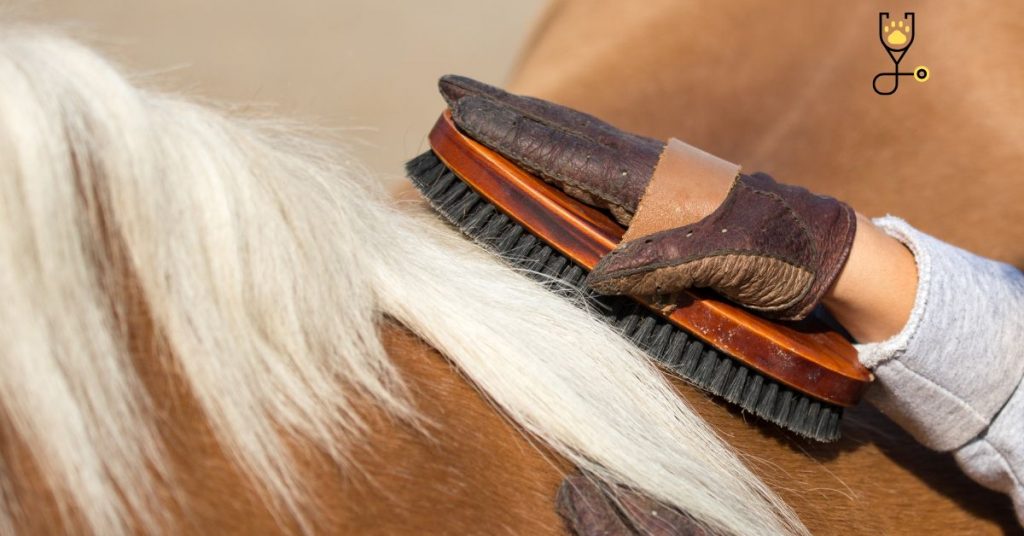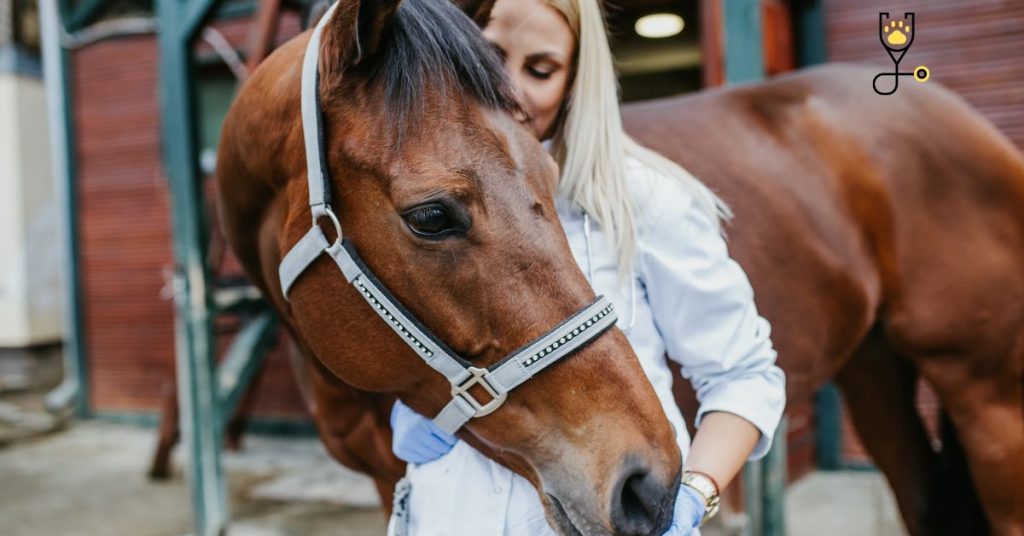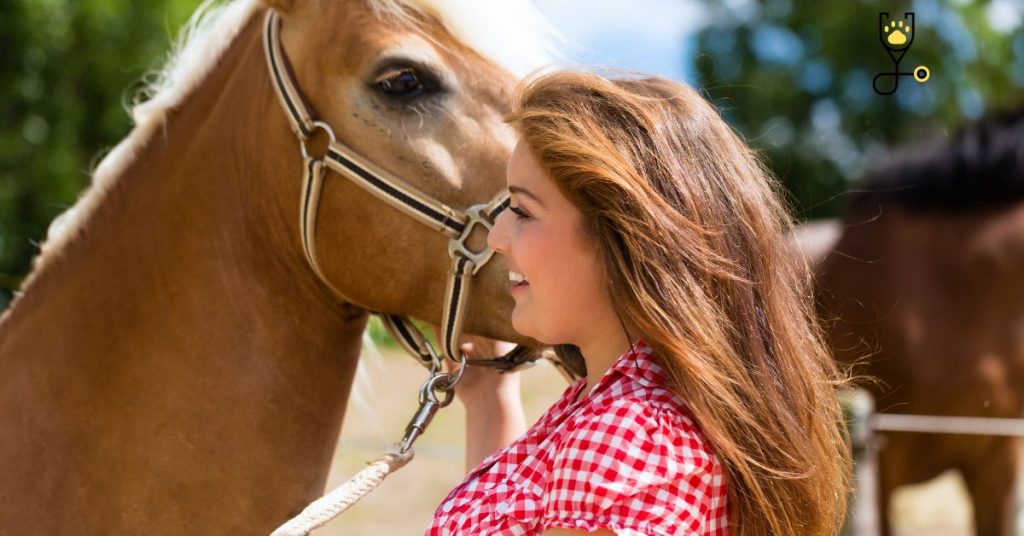Imagine if you will, a life without horses. It is difficult to imagine what life would be like without these majestic creatures. Horses are an important part of our history and play a significant role in our lives today. From providing us with transportation to helping us work the land, to being there for pure enjoyment, horses are amazing animals that touch many aspects of our lives. But how do we provide for their care on a daily basis? Let’s explore horse and pony care by day, week, month, and year.
Daily Horse and Pony Care
1. Feed your horse a balanced diet: Horses require a high-fiber, low-sugar, and -starch ration to keep their digestive systems healthy. Hay should be the mainstay of your horse’s diet, supplemented with grains or other concentrates as needed.
2. Provide fresh water at all times: Make sure that your horse always has access to clean, fresh water in order to promote optimum health and performance.
3. Exercise and train regularly: Regular exercise is essential for maintaining optimal health and performance in horses. Workouts can range from long trail rides to intense dressage sessions or jump courses.
4. Grooming: A regular grooming routine is important for keeping your horse’s coat healthy and free from dirt, mud, and parasites. Brushing should be done daily, while clipping and bathing can be done less often as needed.

5. Monitor your horse’s health: Regular veterinary checkups and examinations are important for detecting signs of illness early on. Be sure to take note of any behavioral changes or physical issues that require attention from a professional.
6. Provide proper housing and turn-out: Horses need a comfortable shelter that is well-ventilated, free from drafts, and stocked with plenty of bedding material to stay warm in the winter months. Turn-out time is also essential for horses; an open pasture allows them to socialize and exercise naturally.
7. Hoof care: Healthy hooves are essential for soundness in horses. Regular trimming and maintenance are necessary to keep them in good condition.
8. Dental care: Regular dental checkups are important for preventing disease and maintaining your horse’s health and performance. Your veterinarian can help you develop a routine for proper dental care that is tailored to the individual needs of your horse.
9. Worming: A regular deworming program should be established in order to prevent parasite infestation, which can lead to serious health problems if left untreated. Speak with your veterinarian about the best way to protect your horse from parasites.
10. Be aware of changes in behavior: Pay attention to any changes in behavior or appetite, as these may indicate an underlying medical issue or emotional distress in your horse.
Monthly Horse and Pony Care
1. Vaccinations: Horses should be vaccinated against several common illnesses, including equine influenza, rhinopneumonitis, tetanus, and rabies. Consult your veterinarian regarding the best vaccination schedule for your horse.
2. Feeding: Monitor your horse’s weight to make sure that they are getting the right amount of nutrition. Adjust their feed as needed to maintain their proper body condition score and energy levels.
3. Hoof care: Have a farrier check your horse’s hooves every 4-6 weeks, depending on the level of work and wear they experience each month.
4. Parasite control: Consistent deworming is essential for preventing internal parasites from taking hold in your horse’s system. Speak with your veterinarian about the best program for controlling parasites in your horse.
5. Teeth care: Have a veterinary professional examine your horse’s teeth at least once per year, or more often if needed. This will help ensure that any existing dental problems are addressed promptly and can prevent future ones from occurring.
6. Monitor for signs of lameness: Look for any signs of pain or discomfort when you’re handling your horse, as these could be indicators of an underlying lameness issue that needs medical attention.

7. Check tack and equipment fit: Make sure that saddles and other riding equipment fit properly by having them checked by professionals on a regular basis to avoid causing any issues related to ill-fitting girths, bridles, and bits.
8. Grooming: Keep your horse looking its best by brushing regularly and clipping as needed to keep the coat healthy and free from dirt, mud, and parasites.
9. Exercise: Make sure that your horse is getting enough exercise to stay healthy, both physically and mentally. This can help prevent boredom, which can lead to unwanted behaviors and health issues.
10. Monitor your horse’s behavior: Pay attention to any changes in your horse’s behavior, as this may indicate a problem that needs further investigation by a veterinarian. Overall, it’s important to stay vigilant in monitoring your horse’s health and well-being, as this will help ensure that they live a long and healthy life.
Yearly Horse and Pony Care
1. Coggins test: Have your horse’s blood tested for Equine Infectious Anemia (EIA) at least once per year, or more often as determined by your veterinarian. This test is essential for traveling with your horse and participating in shows and other events.
2. Vaccinations: Horses should be vaccinated against equine influenza, rhinopneumonitis, tetanus, and rabies on an annual basis to stay up-to-date on their immunizations. Discuss the best vaccination program with your veterinarian to keep them healthy and safe from potential illnesses.
3. Eye exam: Have a veterinary ophthalmologist examine your horse’s eyes annually to check for any issues related to vision or the health of the eyes.
4. Dental exam: Have a veterinary professional inspect your horse’s mouth for any problems with their teeth, including over- or under-eruption, cavities, and sharp edges that can cause pain and discomfort.
5. Blood work: Have a complete blood panel performed annually to ensure that all of the vital organs are functioning as they should be and to detect any health concerns early on.
6. Body condition score: Monitor your horse’s body condition score regularly to make sure they are maintaining an optimal weight. This will help keep them in top physical shape while also preventing obesity-related issues like laminitis and colic.
7. Parasite control: Regular deworming is important for keeping parasites from taking hold in your horse’s system. Work with your veterinarian to find the best program for controlling parasites based on your horse’s individual needs.
8. Nutrition: Make sure that your horse is receiving a balanced diet that meets its nutritional requirements and supports its activity level. If you have any concerns about their diet, speak with a nutritionist or equine health professional for advice.
9. Hoof care: Have a farrier examine and trim your horse’s hooves every 4-6 weeks, depending on the amount of wear they experience each month due to work or play.

10. Exercise: Provide ample exercise opportunities for your horse to stay physically and mentally healthy, as well as to prevent boredom which may lead to unwanted behaviors and health issues.
Conclusion
Proper care of your horse or pony is essential to ensure they stay healthy and happy. It is important to check your horse regularly for any signs of injury, illness, or lameness and discuss their health needs with your veterinarian. Additionally, make sure that tack and equipment fit properly and that grooming, nutrition, exercise, hoof care, and parasite control are all up-to-date in order to provide the best possible life for your equine companion. With a little bit of dedication and knowledge, you can help keep your horse or pony in tip-top shape!
Frequently Ask Questions
Q1: How often should I have my horse’s teeth checked?
A1: Have your horse’s teeth examined by a veterinarian every 6-12 months, or more often if recommended by your vet. This is important to ensure that their teeth are in good condition and free of any issues like cavities or sharp edges that can cause pain and discomfort.
Q2: How often should I vaccinate my horse?
A2: Horses should be vaccinated against equine influenza, rhinopneumonitis, tetanus, and rabies on an annual basis to stay up-to-date on their immunizations. Discuss the best vaccination program with your veterinarian to keep them healthy and safe from potential illnesses.
Q3: How often should I deworm my horse?
A3: Deworming should be done every 2-6 months, depending on your horse’s individual needs and the recommendations of your veterinarian. This will help keep parasites from taking hold in your horse’s system and can prevent serious health issues.
Q4: How often should I have my horse’s hooves trimmed?
A4: Have your horse’s hooves examined and trimmed by a farrier every 4-6 weeks, depending on the amount of wear they experience each month due to work or play. This helps prevent long-term issues with their hoof health that can affect their mobility and overall well-being.





